Member Guest Blog: Clear Path International
Posted on April 28, 2011.
Clear Path Launches Large-Scale Ramp Project in Afghanistan
When more than 800,000 Afghans are severely disabled, it’s easy to see why there’s a drastic need for schools, hospitals, government buildings and places of worship to be made accessible to them.
But people with disabilities in Afghanistan have suffered from a nearly universal lack of access to these and other important buildings and facilities. The Afghanistan Central Office of Statistics has estimated that 98 percent of all buildings cannot be entered by wheelchair.
This past year, Clear Path International launched a pilot project to alter this situation by constructing high-quality ramps at key locations throughout the country applying best practices established in the industry. Clear Path is a nonprofit organization that assists victims of landmines and other explosives, and others disabled or displaced by armed conflict in Southeast Asia and Afghanistan.
Not only are the projects performing a critical service for this vulnerable segment of Afghanistan’s population, they also are helping to establish good will between the United States and Afghan leaders at a time when that relationship has been severely stressed. CPI programs in Afghanistan are funded by the U.S. Department of State Weapons Removal and Abatement (WRA).
“We’ve had two different reports that the Ulema (Council of Mullahs and Imams in Afghanistan) has specifically mentioned the work of CPI at the Eid Gah Mosque, as well as commented positively in general on the role of Americans bringing accessibility changes at this very high-profile religious site,” said CPI Program Manager Matthew Rodieck. “One of the leaders of the Ulema, a double-amputee martyr and former Mujahedin commander, was especially complimentary.”
Eid Gah Mosque in Kabul is one of the highest profile mosques in Afghanistan and is where VIPs regularly worship and hold funeral prayers of martyrs. CPI through its Afghan partner organization, Accessibility Organization for Afghan Disabled (AOAD), built three ramps complete with handrails. In Kabul, CPI and AOAD also constructed three ramps at the Antoni Infectious Disease Hospital, an important referral site for tertiary care and the only facility of its kind in the country.
In Kapisa Province, north of Kabul, Afghan Amputee Bicyclists for Rehabilitation and Recreation (AABRAR) developed and implemented access ramps at several diverse sites. These included the main mosque of the capital city, which became the only physically accessible mosque in the entire province, the Ministry of Information and Culture, and the Ministry of Education. Several public schools throughout the rural community were also ramp sites in the AABRAR project, each selected based on feedback from local authorities about their priorities.
In Balkh Province, in the north of Afghanistan, Afghan Landmine Survivor Organization (ALSO) constructed access ramps at several educational settings across Mazar-i Sharif, the main city of Balkh. The sites selected included co-educational elementary schools, boys’ high schools, girls’ high schools, and the Balkh University making it one of the few institutions of higher learning in the entire country with accessible buildings.
Going forward, CPI hopes to build nearly 600 ramps at 350 sites throughout Afghanistan. The $660,000 project funded by WRA will involve the same three partner organizations. A key component of the ramp project is to raise awareness of the rights of people with disabilities, said Rodieck. “Awareness is quite low; there’s not much sensitivity.”
That awareness campaign also will make its way into the classroom at Kabul Technical University’s Engineering School where CPI hopes it will result in some practical solutions. “We want to engage the entire faculty on physical accessibility design,” Rodieck said. “We want to advocate on a more institutional level that the curriculum become more realistic.”
For more information about this project, contact Matthew Rocieck at matthew@cpi.org.
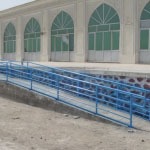
April 2011 Newsletter
Posted on April 27, 2011.
Welcome to the April 2011 issue of the Global Washington newsletter. If you would like to contact us directly, please email us.
IN THIS ISSUE
Note from our Executive Director
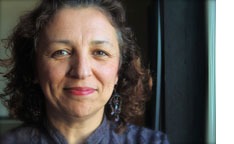
Greetings and happy spring to all of you,
We have been very busy at Global Washington. We have started the process of planning for our Annual Conference, which will again be hosted by Microsoft and will take place on their campus on October 31st and November 1st. We are also planning a statewide summit on international education for Nov 18th to be hosted by Seattle University. Our members are meeting and working to develop a strategy for both convenings. Let me know if you are interested in joining either of these groups.
I hope that you have had a chance to participate in some of our programming. We continue to bring to you thought leaders like David Roodman, Senior Fellow at the Center for Global Development, who will be here in early May to bring us the most recent dialogue about the microfinance industry. We are also looking forward to hearing from leaders like Dean Karlan, Professor of Economics at Yale University, whose research focuses on microeconomic issues relating to public policies and poverty.
We are proud of the caliber of the speakers we are bringing to Seattle to connect with our members. As we continue to do this work, we appreciate your involvement, support, and membership.
Thank you to all of you for the very important work you are doing around the world and I look forward to seeing you at our events,
In unity,

Bookda Gheisar, Executive Director
Featured Story
New Staff member at Global Washington
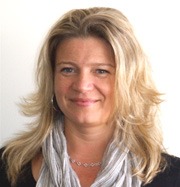 Greetings! I am so pleased to have recently joined the Global Washington team in order to increase our reach and visibility within the community and to deepen our connection to all of Global Washington’s members. With both current and new members I will be focused on hearing from you to ensure we are doing our best to strengthen, advocate, and educate on behalf of the international development sector in Washington State. Over the next couple of months I will be creating opportunities to meet you and your organization and to personally learn about your organization’s mission, current work, and plans for the future and how that connects with Global Washington and the larger development community.
Greetings! I am so pleased to have recently joined the Global Washington team in order to increase our reach and visibility within the community and to deepen our connection to all of Global Washington’s members. With both current and new members I will be focused on hearing from you to ensure we are doing our best to strengthen, advocate, and educate on behalf of the international development sector in Washington State. Over the next couple of months I will be creating opportunities to meet you and your organization and to personally learn about your organization’s mission, current work, and plans for the future and how that connects with Global Washington and the larger development community.
Please contact me at kate@globalwa.org if you have any questions, otherwise I look forward to meeting you soon!
Best Regards,
Kate Lorenzen
Back to Top
Featured Organization
Pre-vent: Healthcare for Women and Children
Interview with Robin Jafari
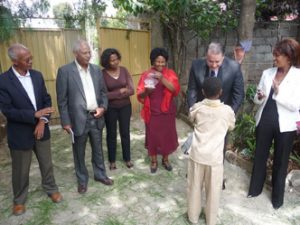 “Doing good comes from doing right,” says Dr. Robin Jafari. 2 years ago, Dr. Jafari and his wife Jodi, a neonatal nurse, founded Pre-vent, a nonprofit organization that helps women and children in need. Pre-vent promotes and supports maternal, newborn and child global health programs in developing countries through patient education, behavior change, workforce training and innovation. Pre-vent’s vision “is a world in which equitable and affordable access to preventive health education and services help protect vulnerable populations by focusing on sustainable innovations that have meaningful and measurable impact in lowering the incidence of maternal and child morbidity and mortality.”
“Doing good comes from doing right,” says Dr. Robin Jafari. 2 years ago, Dr. Jafari and his wife Jodi, a neonatal nurse, founded Pre-vent, a nonprofit organization that helps women and children in need. Pre-vent promotes and supports maternal, newborn and child global health programs in developing countries through patient education, behavior change, workforce training and innovation. Pre-vent’s vision “is a world in which equitable and affordable access to preventive health education and services help protect vulnerable populations by focusing on sustainable innovations that have meaningful and measurable impact in lowering the incidence of maternal and child morbidity and mortality.”
Dr. Jafari was inspired by the message that Ban Ki-Moon, current Secretary General of the United Nations, presented during his convocation speech at the University of Washington. He called for action and challenged everyone to do what they could to alleviate the challenges facing the global health community: “Don’t wait until you are asked to act, go ahead, be proactive and do some good. The sick and vulnerable people need you right now.”
“I believe that access to gender neutral healthcare is a fundamental human right of every woman and child and I strive to make this possible for as many people as I can. Bringing attention and funding for making sure that stillbirths are counted in vital health records has huge ramifications in the physical and emotional well being of mothers around the globe. At Pre-vent, we intend to make that happen,” Dr. Jafari explains.
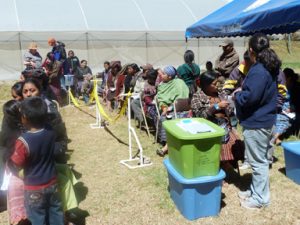 Pre-vent creates sustainable impact, reversing the trends in maternal and child illness and death through the implementation of programs that are inexpensive, sustainable and scalable in countries of greatest need such as Ethiopia, Uganda and Guatemala. In Uganda, Pre-vent Maternal Emergency Medication Kits containing life saving essential priority medications recommended by WHO will be distributed to community health centers in a program that save lives at birth with the cooperation of the Ministry of Health. These innovative kits that have unit dosing with easy instructions are used for post-partum hemorrhage, severe pre-eclampsia and eclampsia as well as maternal sepsis. Together, these three easily treatable conditions account for over 90% of maternal deaths, but regrettably most community health centers don’t have many of these readily available medications. Pre-vent is working on a similar Neonatal Emergency Medication Kit.
Pre-vent creates sustainable impact, reversing the trends in maternal and child illness and death through the implementation of programs that are inexpensive, sustainable and scalable in countries of greatest need such as Ethiopia, Uganda and Guatemala. In Uganda, Pre-vent Maternal Emergency Medication Kits containing life saving essential priority medications recommended by WHO will be distributed to community health centers in a program that save lives at birth with the cooperation of the Ministry of Health. These innovative kits that have unit dosing with easy instructions are used for post-partum hemorrhage, severe pre-eclampsia and eclampsia as well as maternal sepsis. Together, these three easily treatable conditions account for over 90% of maternal deaths, but regrettably most community health centers don’t have many of these readily available medications. Pre-vent is working on a similar Neonatal Emergency Medication Kit.
Pre-vent reaps many benefits by being located in Washington State such as the joyful philanthropic spirit that permeates here allows for opportunities for collaboration and partnerships with great institutions of giving, teaching, and research. “Not only is this part of the Pacific Northwest very beautiful, but Seattle is also becoming the global focus for maternal child health and charitable giving thanks to Melinda Gates. We are aware of the impact that Global Health can have on Washington State economic development; not only on technologic innovation, but also on human resource development and job creation,” Dr. Jafari explains.
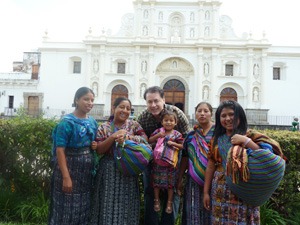 Pre-vent is interested in collaborating with other organizations in Washington State such as I-TECH, IHME, University of Washington’s Schools of Nursing, Global Health, and Ob/Gyn and Pediatrics, as well as with Seattle Children’s Hospital, and PATH.
Pre-vent is interested in collaborating with other organizations in Washington State such as I-TECH, IHME, University of Washington’s Schools of Nursing, Global Health, and Ob/Gyn and Pediatrics, as well as with Seattle Children’s Hospital, and PATH.
Creating and maintaining the sustainability of a non-profit does not happen without many challenges, but the rewards of helping your fellow human beings makes up for it.
“The first time I went to an HIV/AIDS care and treatment center in Ethiopia I was overwhelmed with emotion and could not control my tears as a result of seeing so many young, innocent, and beautiful children with HIV,” said Dr. Jafari. “The staff there told me that they frequently break down as well and cry in private. That was a strange experience for me because in my private practice I always kept my composure no matter what the situation was and was able to intervene directly.”
Dr. Jafari’s central message was one of encouragement because people can truly make a difference: compassionate and contagious philanthropy is the answer because “I am and I can. And so can you.”
Back to Top
Changemaker
Young People and Development: Sammie Rayner, Founder and Executive Director at Lumana Credit
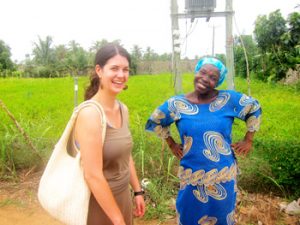 At the young age of 23, Sammie Rayner has already founded Lumana, a non-profit that is working to “alleviate poverty in rural communities through education and entrepreneurship.”
At the young age of 23, Sammie Rayner has already founded Lumana, a non-profit that is working to “alleviate poverty in rural communities through education and entrepreneurship.”
Rayner says she became interested in development through a “sudden turn of events” when she was enrolled in the University of Washington School of business. “I was in business school and realizing that I didn’t want a corporate career,” said Sammie. Then, in her junior year, Dr. Mohammed Yunus came to speak, and having read his book her interest in micro-finance grew.
This passion for development lead to a trip to Ghana. Sammie was with a group that had been working on some small-scale NGO projects. It was there that she worked with Chief Dr Samuel Adjorlolo, whom she mentions as one of her role models. When describing the Chief, Sammie reflects: “you see a lot of local chiefs that don’t invest as much in their community, so seeing him, his approach, and his ability to collaborate is incredible.”
Through this partnership, Sammie began a pilot project in the village in Ghana. Using only 5000 dollars, which she raised through a fundraiser, and in a time span of only two months, the program was able to serve 30 entrepreneurs. While running this pilot program, Sammie started working with a group of motivated young people on the concept of creating a microfinance institution to serve this community. This collaboration between young people in development and local level partnerships, ultimately led to the creation of Lumana.
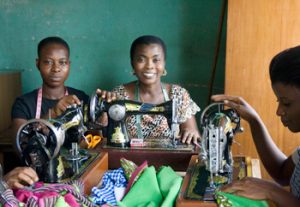 Although the organization has only been in existence since 2009, they have already given out loans to close to 250 borrowers in Ghana. While Lumana uses the group-lending model, there is a heavy emphasis on individual education. All borrowers must undergo upfront training, which teaches basic information about finances. “We don’t want anyone going through the program who doesn’t understand what an interest rate or debt is.” Additionally, once the loan has been given, financial literacy classes continue. “These classes mainly promote savings planning but also include marketing and business information,” said Sammie.
Although the organization has only been in existence since 2009, they have already given out loans to close to 250 borrowers in Ghana. While Lumana uses the group-lending model, there is a heavy emphasis on individual education. All borrowers must undergo upfront training, which teaches basic information about finances. “We don’t want anyone going through the program who doesn’t understand what an interest rate or debt is.” Additionally, once the loan has been given, financial literacy classes continue. “These classes mainly promote savings planning but also include marketing and business information,” said Sammie.
There are two primary criteria considered when someone applies for a loan with Lumana: “That you have a reasonable business goal, and you that they fit in the progress out of poverty index created by the Grameen Foundation.” This allows Lumana to ensure that they are serving clients that will help achieve their mission of poverty alleviation through entrepreneurship. Sammie cites these clients’ success as one of her biggest accomplishments. It is the everyday things like “hearing about Florence, who working towards purchasing her design machine and being almost three fourths of the way there.”
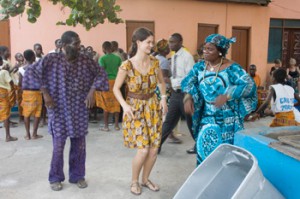 When asked if the global micro-finance crisis had negatively impacted Lumana, Sammie replied that it had not. In fact “we have not really been effected by the crisis, although it has made many donors and investors cautious about microfinance. After examining our organization and the many others around the world practicing safe microfinance, they are able to see how we are different and continue to support the organizations like ours who are client focused in our approach.” Because the borrower always comes first in the Lumana model, they are holding off expansion at least through this year. While they have looked into partnerships in Kenya, South Africa and Zambia, developing a concrete program before growth is important to the organization. “We really wanted to make sure we had a solid foundation and are not loosing the importance of what we are doing,” Sammie said. Some day the organization hopes to be financially independent, but has maintained a very clear position that they are putting the people first, so this may take some time. Already, Lumana is able to pay their three local staff in Ghana off of the profit their lending generates, so they are well on their way to financial sustainability.
When asked if the global micro-finance crisis had negatively impacted Lumana, Sammie replied that it had not. In fact “we have not really been effected by the crisis, although it has made many donors and investors cautious about microfinance. After examining our organization and the many others around the world practicing safe microfinance, they are able to see how we are different and continue to support the organizations like ours who are client focused in our approach.” Because the borrower always comes first in the Lumana model, they are holding off expansion at least through this year. While they have looked into partnerships in Kenya, South Africa and Zambia, developing a concrete program before growth is important to the organization. “We really wanted to make sure we had a solid foundation and are not loosing the importance of what we are doing,” Sammie said. Some day the organization hopes to be financially independent, but has maintained a very clear position that they are putting the people first, so this may take some time. Already, Lumana is able to pay their three local staff in Ghana off of the profit their lending generates, so they are well on their way to financial sustainability.
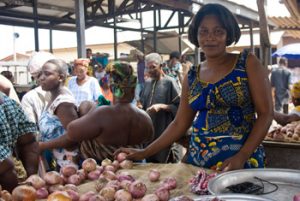 In addition to providing micro-finance Lumana also had a fellowship program to get young people involved in development. So far this fellowship has sent 21 young people from four countries to Ghana. This summer they plan to send four more and the fellowship program is evolving every year. The program includes language courses and the fellows have access to translators. The language is especially important as only 10% of the Lumana clients speak English, and there are thirteen local languages in Ghana. Sammie explained that this is actually why a lot of people choose to donate to Lumana, because of the youth involvement. The organization’s funding is 85% from individuals, so young people appear to be stimulating microfinance funding. Besides the fellowship program, Lumana is also partnering with Seattle University to give students more hands on experience. Currently, Lumana is helping to create curriculum for the global poverty class. During this class, Lumana will guest lecture, help to structure a project, and ultimately select a few students to go to Ghana.
In addition to providing micro-finance Lumana also had a fellowship program to get young people involved in development. So far this fellowship has sent 21 young people from four countries to Ghana. This summer they plan to send four more and the fellowship program is evolving every year. The program includes language courses and the fellows have access to translators. The language is especially important as only 10% of the Lumana clients speak English, and there are thirteen local languages in Ghana. Sammie explained that this is actually why a lot of people choose to donate to Lumana, because of the youth involvement. The organization’s funding is 85% from individuals, so young people appear to be stimulating microfinance funding. Besides the fellowship program, Lumana is also partnering with Seattle University to give students more hands on experience. Currently, Lumana is helping to create curriculum for the global poverty class. During this class, Lumana will guest lecture, help to structure a project, and ultimately select a few students to go to Ghana.
When asked what advice she would give to young people getting involved in development, Sammie said that she would recommend: “getting over the young person complex and recognizing that you can do something.” For her, this happened when she realized that she had the ability to raise $5000 and that money had the ability to really affect change for a community.
Sammie is the embodiment of inspiration and youth involvement in development. Not only has she created an innovative micro-finance organization that has served three villages in Ghana, she has also invigorated this interest in other young people. Mentorship is a role that Sammie will continue alongside her development goals. In her own words: “no matter what I am doing I think that I will constantly engage with young people.”
Back to Top
Welcome New Members
Global Washington would like to welcome its newest members! Please take some time to familiarize yourself with these organizations that are doing wonderful work in the state of Washington. Consider what opportunities there might be for collaboration and support. Together we are creating a unified voice for the development sector in the state and are working to build a equitable and prosperous world.
The YMCA of Greater Seattle
The YMCA of Greater Seattle is an inclusive organization of men, women and children with a shared commitment to nurture the potential of youth, promote healthy living and foster social responsibility. The Seattle Y supports strengthening the global community through: International youth and young adult exchange, service learning and cross-cultural education; Community Engagement of immigrant and newcomer populations; and Movement Strengthening by Increasing the capacity of Ys in developing countries to be self-sustaining.
Etta Projects
The people of Montero, Bolivia and its environs know what they need. Our work is to facilitate and help communities find the pathways to sustainable and realistic answers to have those needs met. We’re a lean, practical organization whose donated dollars and energy go straight to improve health and support projects that provide clean water, nutritious food, education and income generation.
Global Helps Network
Global Helps Network exists to facilitate the adoption of villages among “developing countries” by churches and organizations in America. To assist the village leadership in their development socially, economically & spiritually, with a special emphasis on the “Untouchables (or Dalits) of India”.
West African Vocational Schools
West African Vocational Schools is a Christian, Seattle-based nonprofit that teaches job skills to people in Guinea-Bissau, one of the smallest and poorest countries in the world, empowering local leaders in Guinea-Bissau and giving them practical skills that translate into jobs. At its school in the city of Canchungo, more than 150 students take courses in sewing, computer basics, English and auto mechanics.
Schools for Salone
Schools for Salone is a non-profit organization committed to helping Sierra Leoneans rebuild the many rural schools destroyed during their country’s ten year long civil war that ended in 2002. The organization seeks to revitalize communities, empower children and ultimately improve socioeconomic conditions for families, communities, and future generations.
Clay for Earth
Clay for Earth serves as a symposium of sustainable solutions that have been proven practical, bringing together the brightest ideas developed through worldwide efforts. Many of the world’s most innovative ideas have taken years to develop. They offer practical solutions to poverty and community degradation. Many of these applications remain relatively unknown.
Individuals
Back to Top
Book Review

The Boy Who Harnessed the Wind: Creating Currents of Electricity and Hope
By William Kamkwamba and Bryan Mealer
Harper Collins Publishers, New York, NY, 2009
Imagine growing up in a world of magic where witches and wizards lay traps in the forest. Magic lions and hyenas wander villages at night. All pose special dangers to children. You play games with your two best friends, learn to hunt and build traps for animals. You attend primary school and your parents are able to support a large family with limited resources. As you get older, you start to take apart radios, figure out how they operate and fix them. You have dreams of being a scientist. Then the sudden death of an uncle results in the failure of a family business and your family’s economic circumstances rapidly decline. This tragedy is compounded by weather that destroys farm crops throughout the region. Plans of going to secondary school are derailed when your parents are unable to raise the $80 to pay school fees.
Welcome to the world of William Kamkwamba in a village in northern Malawi. This is his true story, as told by William with the assistance of Bryan Mealer (a former Associated press foreign correspondent) in The Boy Who Harnessed the Wind. It tells how, out of this disaster, a young teen following his intuition and inventiveness creates, with the help of cast off materials and a few library books about generating electricity, an amazing home made windmill. His neighbors think he is crazy but eventually view him as a local hero when his windmill provides electricity to his home and water to the village.
The heart-warming tale of persistence and eventual success is set within a severe famine in 2002. It provides a harrowing view of how poor peasant farm families can easily slide into profound destitution with no safety net or government support. And, it details how a family copes with dwindling food supplies as they go from 3 meals a day to one meal a day, then to fewer spoonfuls of food for each person at that one meal. The authors also outline the larger political and social forces that allow famines to occur and spread to impact thousands who starve and die.
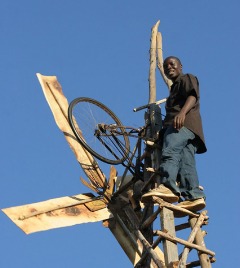 William’s ultimate success is a product of his own determination and confidence in himself. But, William doesn’t succeed in isolation, he succeeds because others see his determination and provide support. He is helped by friends around the globe who learn of his invention and who mentor him to further his education and communicate his story. Perhaps the greatest gift of this engaging book is the story of how we are all interconnected. Perhaps one of the most effective forms of “foreign aid” is for people with ideas and energy in wealthy countries to support people like William in poor countries who are working to solve their own problems and lift their families and friends out of poverty. And, most importantly to help young people like William realize their own dreams and develop into leaders within their countries. William sums these sentiments up eloquently at the end of the book when he writes:
William’s ultimate success is a product of his own determination and confidence in himself. But, William doesn’t succeed in isolation, he succeeds because others see his determination and provide support. He is helped by friends around the globe who learn of his invention and who mentor him to further his education and communicate his story. Perhaps the greatest gift of this engaging book is the story of how we are all interconnected. Perhaps one of the most effective forms of “foreign aid” is for people with ideas and energy in wealthy countries to support people like William in poor countries who are working to solve their own problems and lift their families and friends out of poverty. And, most importantly to help young people like William realize their own dreams and develop into leaders within their countries. William sums these sentiments up eloquently at the end of the book when he writes:
“We must encourage those still struggling to keep moving forward. My fellow students and I talk about creating a new kind of Africa, a place of leaders instead of victims, a home of innovation rather than charity. I hope this story finds its way to our brothers and sisters out there who are trying to elevate them selves and their communities, but who may feel discouraged by their poor situation. I want them to know they’re not alone. By working together, we can help remove this burden of bad luck from their backs, just as I did, and use it to build a better future.”
Read this inspiring short book, The Boy Who Harnessed the Wind, and attend a public book club and discussion on Thursday, May 12th, , 6:30 PM at the Life Enrichment Bookstore (LEMS) in Columbia City (5023 Rainier Ave S) The program is sponsored by the Seattle chapter of RESULTS (www.results.org, dedicated to creating the political will to end poverty and hunger) . For further information, contact Ellie Graham at elinoragraham@me.com.
Back to Top
Announcements
The University of Washington is hosting a discussion on the impact of global business
University of Washington’s Global Business Center, NetImpact, and the Global Business Association are presenting a panel discussion on “New Direction in Global Business: What does it take to make REAL change?” The discussion will take place on May 3rd at 6:00pm in Kane Hall 210 on the UW campus and will feature responsible business thought leaders discussing the new role of business in providing lasting positive impact on societies and the environment. The panelists will discuss what it takes to educate our future entrepreneurs, leaders and managers. Panelists include:
- Joyce Lavalle, former Sr. VP of Marketing, InterfaceFLOR
- Steve Lippman, Director, Environmental Engagement Strategy, Microsoft Citizenship
- Carol Sanford, author The Responsible Business
To register, please visit http://www.foster.washington.edu/news/pages/eventdetails.aspx?id=d6af0fdc-ff95-4040-9041-0ad92379dad9&startDate=20110503 or contact wrenmc@uw.edu for more information.
Author of Conversations with Power visiting Seattle
Brian Michael Till, author, columnist and Research Fellow at the New American Foundation, will be in Seattle discussing his new book Conversations with Power; What Great Presidents and Prime Ministers Can Teach Us about Leadership at a community event at St. Mark’s Cathedral on May 20th, at 7pm. The book is a compilation of Till’s conversations with world leaders whom he set out to interview as a new college graduate at the beginning his career. Conversations with Power includes insights from Bill Clinton, Jimmy Carter, Vaclav Havel, Mikhail Gorbachev, and others.
- Date: Friday, May 20, 2011
- Time: 7 P.M.
- Location: St. Mark’s Cathedral
- 1245 10th Ave. East
- Seattle, Washington 98102-4398
- 206-323-0300
Global Washington Focus Groups—Please join us!
We are planning to implement four Focus Groups in the beginning of May to discuss sectors of international development as an important first step to gather member input toward the process of developing Affinity Groups. We hope a focused and engaging conversation will lead us to potential objectives and expected outcomes for working together in more defined groups.
The four proposed Focus Groups will be regarding:
NOTE: Another sector of international development that many Global Washington members are active in is Education and Global Engagement. This sector has already been convening as the Global Education Affinity Group.
We recognize that most of your organizations have important work in a number of these sectors, but we are asking you to offer your expertise to only one for now to help contribute to a group discussion that will lead to actionable items for a working group later.
Let us know if you are interested! Please contact our new Membership and Program Coordinator, Kate Lorenzen at kate@globalwa.org or by phone at 206-547-9392 for proposed dates and times.
Human Rights Symposium “from Seattle to the World” taking place on May 2nd
The University of Washington is presenting “From Seattle to the World,” a symposium on human rights, featuring keynote Larry Cox, Executive Director of Amnesty International. Other presenters include James Bible, President of NAACP of Seattle & King County; Pramila Jayapal, Founder/Executive director of OneAmerica; and Magdaleno Rose-Avila, Globa Justice Leader and Activist.
The Symposium will take place at the University of Washington in Kane Hall Room 220 on May 2nd from 6:00-7:30 and will be followed by a reception celebration.
Committee For Children Is Hiring In Seattle
Committee for Children is a dynamic nonprofit recognized internationally as a leader in developing research-based violence prevention and social and emotional educational curricula. CFC is currently looking for an International Partnership Manager, a Fund Development and Advocacy Strategist, and a Design Intern. For more information or to apply, please visit: http://www.cfchildren.org/about/jobs/
Zambian Ambassador Visits Seattle
At 4:00pm on the 28th, Global Washington is hosting a roundtable discussion with Zambian Deputy Ambassador Mr. Alfred Chioza accompanied by Mr. Willie Ndembela (Economic) Counsellor. The discussion will be followed by special music from Maisha Soul, a musical group from the DR Congo. For more information or to register, visit the Global Washington website. Ambassador Sheila Siwela was originally scheduled to conduct this discussion and sends her apologies that she can no longer attend.
Global Partnerships Receives Significant Investment From FMO
The Netherlands Development Finance Company (FMO) recently announced an investment of $4.4 billion in Global Partnership’s Social Investment Fund, a fund which loans capital to microfinance institutions in Latin America. GP’s fund targets organizations that reach those that most need credit, particularly the rural poor. Most of these organizations provide other services beyond loans, making the work more impactful. We congratulate Global Partnership and FMO on this important collaboration, which will help provide quality financial services to underserved populations.
For more information, please visit: http://www.globalpartnerships.org/sections/newsinfo/newsinfo_nr_GP_fmo_investment.htm
The Global Helps Network Hosts Sister Church Seminar
The Global Helps Network is hosting a seminar for local church leaders and other interested parties to learn more about working for and among the poorest of the poor in India. The seminar will present particular opportunities for service for the Western church. Each partnership is unique and may include the teaching and training of leadership teams of the fledgling congregations, not only in Biblical topics like preaching, and running a church, but practical topics as well, like economic development skills, financial management, village healthcare and advocacy issues. For more information or to register, please visit: http://www.globalhelpsnetwork.org/Seminars.html
Seattle University and Esperanza International Present Perspectives on Global Citizenship Conference
Perspectives on Global Citizenship: Cultivating Transformative Change through Cross Cultural Service
take place on May 7th, from 9:00 to 5:30 at Seattle University. Conference objectives include:
- Develop leadership skills
- Learn best practices from leaders in the service-learning field
- Focus on building partnerships with host communities
- Create quality service programs
- Promote long-term commitment to solidarity, public service and global engagement
The costs is $15 per participant and $10 for students. Visit www.esperanzaint.org/service-conference for session descriptions or to register.
CityClub Annual Meeting to feature a discussion about regional governance
CityClub’s annual meeting on May 4th is titled “A Regional Governance Conversation” and will feature Phillip Chicola, Consul General of the United States of America in Vancouver and Denis Stevens, Consul General of Canada in Seattle. The discussion will be moderated by Steve Scher of KUOW 94.9 FM.
The meeting will take place at the Washington Athletic Club (1325 6th Avenue, Seattle). Registration starts at 11:30am and the lunch of program are from 12:15 to 1:30pm.
Visit www.SeattleCityClub.org to register or call 206-682-7395.
RESULTS hosts public book club and panel on The Boy Who Harnessed the Wind
On May 12th from 6:30-8:30pm at Life Enrichment Bookstore, RESULTS Seattle is hosting a panel discussion on The Boy Who Harnessed the Wind by William Kamkwamba and Byran Mealer. The book is the story of a 14-year-old boy living in rural Malawi. For more details about this book, please see our the “Book Review” section of this newsletter.
When: May 12, 6:30-8:30pm
Where: Life Enrichment Bookstore, Columbia city
5023 Rainier Avenue South
Seattle, WA 98118
Contact: Ellie Graham (elinoragraham@me.com or 206-721-0141) for more information
Back to Top
Global Washington Events:
Thursday, April 28
Roundtable with Zambian Ambassador from Washington D.C. with special music from Maisha Soul
Friday, May 6
Myths of Technology for International Development
Global Washington Member Social
Monday, May 9
The Global Implications of India’s Microcredit Crisis
Monday, May 16
Evaluation Workshop with Innovations for Poverty Action
More Than Good Intentions: Book Discussion
Tuesday, May 17
Evaluation Workshop with Innovations for Poverty Action
Back to Top
Other Events:
Wednesday, April 27
“Future Role for the U.S. in Meeting Global Challenges”
Thursday, April 28
Business and Investment Opportunities in Africa
Exploring Humanitarian Law Workshop for Educators
Tuesday, May 3
New Directions in Global Business: What does it take to make REAL change?
Wednesday, May 4
Cityclub Annual Meeting: A Regional Governance Conversation – Washington & British Columbia
Thursday, May 5
World Affairs Council Spokane: Humanitarian Aid: A Practitioner’s Perspective
Saturday, May 7
Perspectives on Global Citizenship: Cultivating Transformative Change through Cross Cultural Service
Wednesday, May 11
Liberia Peacebuilder Initiative (LPI) Launch Event!
Friday, May 13
Be the Spark: Keynote Address – Desmond Tutu, Nobel Peace Prize Laureate
Monday, May 16
Songea’s Kids: Hope Village Night
Friday, May 20
Sister Church Partnership…The Seminar
“Conversations With Power” Community book event
Thursday, June 2
Trade Development Alliance: 20th Anniversary Dinner
Friday, June 10
The Vietnamese Friendship Association Third Annual Benefit Dinner “Planting Roots, Shaping Futures”
Monday, June 13
Woodland Park Zoo – Travel for Teachers in Summer 2011 – Borneo, Primate Conservation
Seattle BioMed hosts Passport to Global Health Celebration
Back to Top
Global Development Still Matters
Posted on April 18, 2011.
As a member organization for the global development sector in the state of Washington, we urge you to speak out against further cuts to the national budget for diplomacy and foreign assistance. Every day our members are tirelessly devoting their energy and resources to improving the lives of the world’s most vulnerable citizens. We hear their stories about positive changes they have seen—villages accessing clean water, poor women starting their own businesses, children exploring the world through quality education, people receiving simple vaccinations for deadly but preventable diseases. Positive change does not happen by accident. Yet, even simple solutions make a difference. A five dollar mosquito net may be all that is necessary to prevent a child from contracting malaria. It cost $100 million to eradicate smallpox—only a fraction of $1.3 billion that we now save annually thanks to the elimination of the disease.
Our members have experienced firsthand the difference that thoughtful and deliberate investment can make in addressing global problems. That is why most of our members support continued funding for poverty alleviation and global health. Because they are already doing all they can, but more help is still needed. Because these dollars DO make a difference. Because reduced funding means 370,000 people will not be able to get tested and treated for TB. Because continued funding will allow us to virtually eliminate mother-to-child transmission of HIV by 2015. Because investment in global development creates a more stable and prosperous world for everyone.
In the U.S., we have a voice in how we want our tax dollars to be spent. Global Washington’s Board President and Washington State representatives Adam Smith and Jim McDermott have submitted an op-ed to the Seattle Times expressing their support for these programs. Other influential thought leaders have also gone on record in support of continued funding for international development, including Senator John Kerry ; former Republican Congressman Jim Kolbe; Richard Stearns, President of the Christian relief and development organization, World Vision; and countless others from the development sector and beyond. Will you do the same? Let your elected representatives know that even in a difficult economic climate, you still support programs that help the most vulnerable in the world.
Sample text to use when contacting your representative:
I am writing to request that you protect the International Affairs Budget, and the investments in programs to help keep our country safe and grow our economy here at home. I recognize the very real budget constraints facing our nation and Washington and the difficult funding decisions you face. As you grapple with these constraints, however, I urge you to ensure a strong and effective International Affairs Budget and to oppose deep cuts to these programs.
Now is not the time to diminish or abandon America’s leadership around the world – or to cut programs that save money and lives by preventing conflict and instability from developing in the first place. As you know, a small investment in International Affairs programs builds more stable, democratic societies overseas and keeps us safe in the long run. There is strong bipartisan support for the International Affairs Budget, and broad support here in Washington, including the business, military, and faith communities.
We need your continued support to save these programs from deep cuts. I urge you to ensure a strong and effective International Affairs Budget in FY2011 and FY2012. As you know, these programs are essential to building a more stable, peaceful and prosperous world.
Links:
U.S. Foreign Aid Is Not A Luxury But A Critical Investment In Global Stability
Posted on April 17, 2011.
Special to The Times
WITH our country facing mounting debt, and the federal budget standoff nearly bringing the government to a halt earlier this month, some voices in Congress are clamoring to toss foreign assistance on the chopping block.
While an 11th-hour compromise on spending for the rest of 2011 trimmed foreign aid back to 2010 levels (about $8.4 billion below the president’s request), the budget debate has only just begun.
Last Thursday, Rep. Paul Ryan’s proposal for FY2012 hit the House floor. Along with massive cuts to domestic programs, Ryan’s long-term plan would cut international affairs and foreign assistance by 29 percent in 2012 and 44 percent by 2016.
Cuts to diplomacy and foreign assistance are creating less controversy than domestic cuts such as the changes to Medicare and Medicaid laid out by Rep. Ryan. However, there are widespread misconceptions about how much of the budget is actually devoted to international investment and about the true benefits of these programs.
Foreign aid is far from wasteful spending: Dollars spent abroad help maintain America’s economic and political leadership, as well as support our vital national-security interests. These programs have amplified benefits for global stability through contributions to poverty alleviation, health and disease prevention, and infrastructure-building worldwide.
A recent poll reveals many Americans believe that international development makes up 25 percent of the budget, when in reality it is currently only 1 percent. This amount is in danger of being slashed even further by Ryan’s funding proposal. Such cuts to an already minor segment of our spending will do nothing to address the current deficit. Here is a small sample of what they will do, according to many experts:
- Take away access to tuberculosis treatment and testing for 370,000 people worldwide.
- Halt progress in AIDS education and prevention, including access to lifesaving medications that would have eliminated mother-to-child HIV transmission by 2015
- Diminish our ability to effectively conduct disaster-response activities such as our assistance efforts in Japan.
The long-term cost of the proposed cuts is unreasonably high, and not just for those whose lives will be directly affected. Remember, it cost $100 million to eliminate smallpox on the planet, but now saves the world $1.3 billion annually.
Investment in foreign aid is an investment in global relationships and our shared financial future. As developing nations become more prosperous, they will become less dependent on assistance, and Americans will benefit from our established relationships with these emerging markets. Washington state — the fourth-largest U.S. exporter in 2009 — would reap significant economic benefits from such opportunities.
Foreign assistance is the first line of our national defense, making us safer by stabilizing volatile nations. As Secretary of Defense Robert Gates emphasized, “development is a lot cheaper than sending soldiers.”
Further, Gen. David Petraeus has praised development programs and expressed concern that “levels of funding for our State Department and USAID partners will not sufficiently enable them to build on the hard-fought security achievements of our men and women in uniform.”
Many of our nation’s leading development organizations are based here in Washington, and as the state’s elected officials and business leaders, we support the vibrant global-development sector in our community. We have advocated strongly for the maintenance of the current foreign-assistance appropriations and today we ask you to join in supporting this critical work.
Let your elected representatives and community know that you support crucial investments in our safety, economic interests and long-term prosperity. Our budget challenges are immense, but ultimately, we cannot reduce foreign aid without considering the greater cost in global poverty and instability such cuts would produce, now and for future generations.
U.S. Rep. Adam Smith, D-Tacoma, represents Washington’s 9th Congressional District; U.S. Rep. Jim McDermott, D-Seattle, represents the 7th District; Bill Clapp is founder of Global Washington and Seattle International Foundation.
U.S. Foreign Aid Is Not A Luxury But A Critical Investment In Global Stability
Adam Smith, Jim McDermott and Bill Clapp | The Seattle Times | April 17
Member Guest Blog: Strengthening Our Global Donors Network in the Pacific Northwest
Posted on March 29, 2011.
The popularity of microfinance programs has increased dramatically in recent years, with international funders investing hundreds of millions of dollars. Yet, many question the extent to which microfinance programs help alleviate poverty? One of Friday’s workshops at the Pacific Northwest Global Donors Conference will take a critical look at microfinance programs as a tool for addressing poverty. What do we know about the effectiveness of these programs from a poverty alleviation perspective, and how can funders find projects that are effective in reaching this goal?
The April 1-2 gathering is the second annual Global Donors Conference, designed to bring together Northwest grantmakers and philanthropists active and/or curious about global philanthropy. The conference program includes two days of informative and engaging sessions on how climate change affects donor strategies, what’s new in technology for development, corporate-NGO collaboration, food solutions for people and the planet, approaches to igniting the power of young people, pathways for strategic giving, getting real on evaluation, and much more.
Greg Carr—Idaho native, high-tech pioneer of voicemail, co-founder of Harvard’s Carr Center for Human Rights, and global philanthropist whose $40 million commitment to Gorongosa National Park in Mozambique has been profiled in The New Yorker, Smithsonian, and Outside—will deliver the keynote address on Friday. And Margaret Larson—host of New Day Northwest on KING-5, former NBC foreign correspondent, and communications consultant for international nonprofit organizations including World Vision, Mercy Corps, PATH and Global Partnerships—will close the conference on Saturday.
If you haven’t already, check out the agenda at www.globaldonorsconference.org and register today. The conference will be an excellent opportunity to learn more about international issues and effective grantmaking practices as well as network with others engaged in global giving.
-submitted by the Henry M. Jackson Foundation
Member guest blog: Landlessness is not forever
Posted on March 25, 2011.
By Robert Mitchell, Landesa
After more than a decade meeting with government officials and families in rural areas of the developing world, I have yet to encounter anyone who would discount the importance of land, or who would challenge the fact that landlessness is a severely disempowering condition for the rural poor.
It’s easy enough to grasp the concept that land is important, and that it’s especially important to rural families in the developing world. After all, most poor rural families that lack land of their own earn their living by working as day laborers on other people’s land, and land is a primary source of power for their employers. Landlessness and land insecurity, the lot of hundreds of millions of rural people worldwide, is a defining personal and social characteristic, greatly limiting their current options and future prospects.
So much seems clear. What is much less expected—but encountered all too often—is the attitude that landlessness is an immutable “given,” a static social arrangement that cannot be changed. The sky is blue, the town is a ten-hour walk from the village, and a third of the village is and will forever remain landless. Their children and their children’s children will know only landlessness and agricultural wage labor.
This is the assumption of most people I’ve met in the developing world, including government officials, rural development professionals, landowners and even (or especially) landless families themselves. Such attitudes prevail even among progressive thinkers who would like to see landlessness eradicated. But what good is there in hoping for change that shows no sign of coming? Isn’t it better to work on change that can happen, even if such change doesn’t address the root problem of landlessness?
I’ve learned the key to countering this assumption is to imagine—and then test and demonstrate—practical, politically and financially feasible programs through which governments can help landless families gain access and secure rights to land, even modest plots of land. Once a program begins to succeed—and families walk for the first time on land that is theirs, and begin planning what they will produce on the land—there is very often a change not only among these families, but among government land officials. It is truly moving to see seasoned officials marvel at the fact that landlessness can actually be tackled and eradicated.
As crucial as this change in thinking is, shifting the cultural and policy mindset is only the beginning. For a program to reach large numbers of families, it must be well designed, scalable and well monitored, and must receive sufficient staff and other resources. The process cannot be scaled so quickly as to sacrifice quality and attention to detail. Special attention must be paid to ensuring that the process empowers women within the family. Attention must also be given to providing channels through which families can receive information, for example, on which local vegetables and fruits are most easily grown and most nutritious, as well as access to inexpensive improvements, such as drip irrigation, that can greatly enhance the land’s productivity during dry seasons.
As we forge ahead, our shared opportunity is to continually challenge stubborn assumptions that land ownership is limited to only the privileged few. At Landesa, we believe land rights are an asset that can be expanded for all, and that this expansion will unlock potential for generations to come.
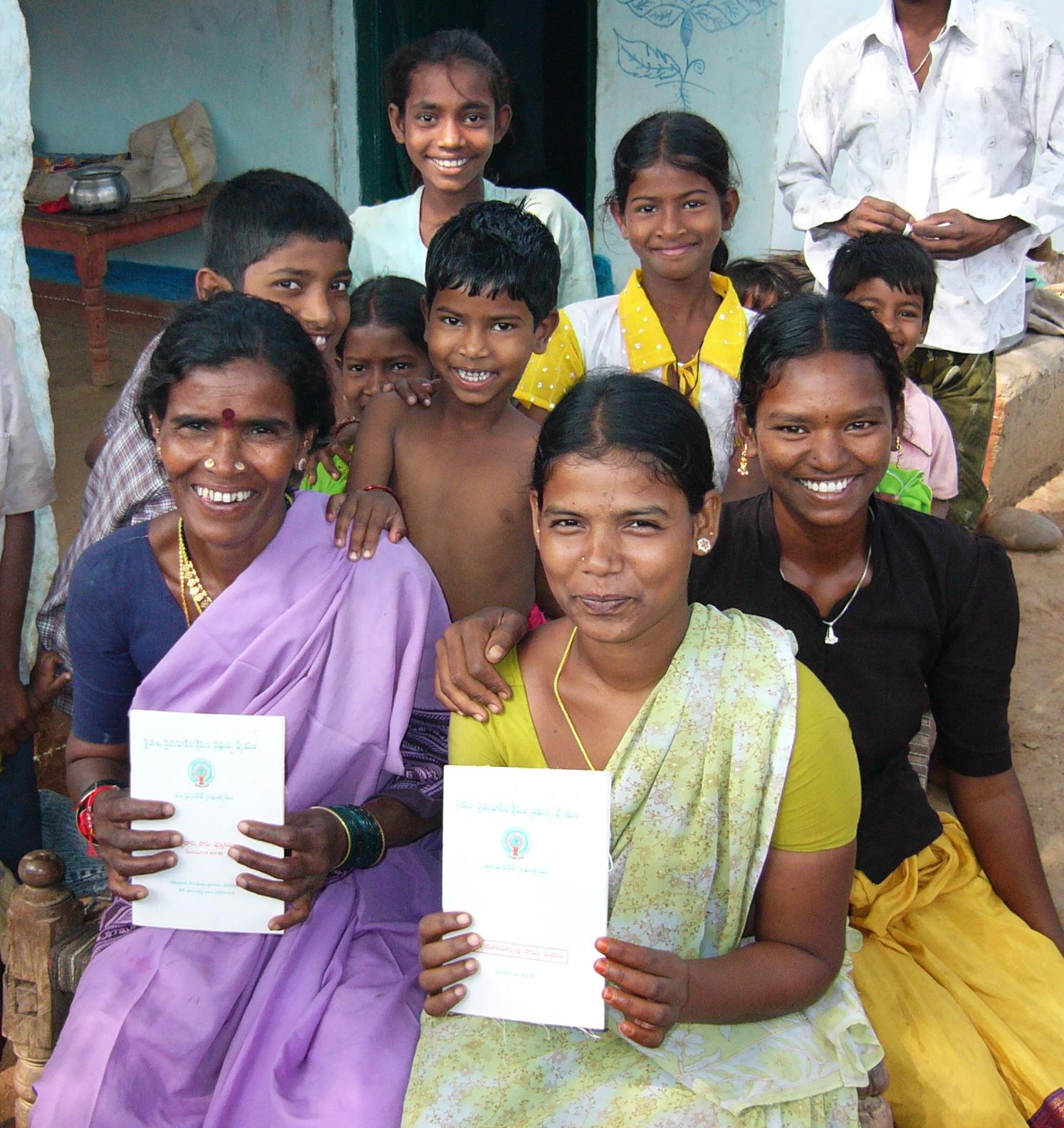

Water for Life
Posted on March 22, 2011.
Water, though paramount to the survival of all living organisms on Earth, is often taken for granted in the developed world. Being so readily available and safe to drink through the tap or out of the bottle, many westerners overlook the absolute necessity of clean, accessible water. Water is responsible for the growth our crops and the health of our livestock. Water can power our cities and potentially fuel our cars. With too many people relying on the same source, water can cause tension and conflict. Without water all together, this planet simply cannot survive.
In essence, water is life.
But nowhere is this notion more apparent than in the developing world, where access to water is legitimately a matter of life and death. Today, 894 million people live without access to reliable and clean water sources. This number, when compounded by the 2.5 billion people who live without basic sanitation, results in 1.5 million deaths per year. 2,000 to 5,000 liters of water is required to produce only one person’s food per day, a requirement that certainly contributes to the figure of 1 billion people currently suffering from chronic hunger. Without this resource to hydrate our bodies, keep our hands and homes clean, or produce our food, survival is impossible.
This is why we celebrate World Water Day every March 22. Since 1992 the world has observed the absolute necessity of the most essential resource on Earth; water. From “Walks for Water” fundraisers to online discussions raising awareness about water issues, this day is made for events that celebrate water around the world. This year’s theme is “Water for Cities, Responding to the Urban Challenge.” As such, the city of Seattle is fully committed to this year’s World Water Day with an all day forum and exposition located in Seattle City Hall. And in case you missed Global Washington’s email, Seattle’s Chief Sealth International High School is devoting this entire week to a festival consisting of events focused on water.
Although water is often over looked, it is still a prerequisite for happiness and prosperity, and deserves to be celebrated as such. I was lucky enough to experience the comfort and joy attained through the access of clean water in my time in Damaraland, Namibia. While volunteering on an elephant conservation project aimed at reducing conflict between those loveable giants and the people with whom they share the desert, my fellow volunteers and I constructed an elephant-proof wall around a man-made well.
Water being a scarce commodity in the deserts of Namibia, elephants are known to demolish plumbing and cave in wells in their attempt to consume what water they can. Such destruction can very easily lead to lethal human retaliation for the disruption of vital access to water. I watched as the inhabitants of the nearby farms and villages, bringing their herds of goats and sheep for a much needed water break as they grazed the hot and arid landscape. With appreciation etched on their faces as they realized this well was now a reliable source of water for themselves and their herds, I came to realize just how important this water was for the survival of these herders and for the survival of all natural beings.
Happy World Water Day everyone!
March 2011 Newsletter
Posted on March 22, 2011.
Welcome to the March 2011 issue of the Global Washington newsletter. If you would like to contact us directly, please email us.
IN THIS ISSUE
Note from our Executive Director

Greetings,
Happy spring. My family and I celebrated Iranian New Year, Norooz, this Sunday with the arrival of spring. I hope you are enjoying this beautiful time of the year as well.
Global Washington is continuing to move forward with our framework for convening, strengthen, and advocating on behalf of the development sector in Washington. We are in the process of hiring a Membership and Program Coordinator who will support the deepening of our work byconvening members around their issue areas and expertise. We see this as an important opportunity to bring our members together on a regular basis, serving our core purpose of being a catalyst for greater partnership and innovation in the Washington State international development community. In this newsletter you will find a list of groups you can join to engage in this dialogue. Please feel free to contact me if you are interestedin contributing to this effort and helping us create opportunities this year that will provide you with the greatest benefit.
Last month, after announcing our plans with the education sector, I received 50 emails from people who wanted to help by working on these committees. We are thrilled with this response and look forward to providing all of you with opportunities to connect with one another in the coming months.
In unity,

Bookda Gheisar, Executive Director
Ways to be involved with Global Washington
Here are four ways that you can get more involved with Global Washington:
-
- Global Washington is starting Affinity Groups in the following areas to support our members’ work:
Each Affinity Group will be chaired by two Global Washington member organizations and staffed by Global Washington (staff, volunteers, or interns). If you are a member organization and interested in chairing or joining an Affinity Group please let us know by contacting Bookda@globalwa.org
-
- The Education and Global Engagement Affinity Group will be dividing into three Working Groups in 2011:
- World Languages: Identify language priorities, teaching and learning pedagogies, and curriculum and program design.
- Building a Global Classroom in the U.S. and Abroad: Identify pedagogy and desired learning outcomes, technology and infrastructure for supporting student interactions, and program design to facilitate global student interactions.
- Pedagogy and Competency Building: Identify effective pedagogies for teaching students and training teachers, promoting specific goals, evaluation metrics, and a vision for global education in Washington schools.
To get involved with one of these working groups please contact Bookda@globalwa.org
- Other working groups: Global Washington also recognizes the importance of our members working together around common themes, challenges, and trends in their fields. We are in the process of bringing together a few other working groups, which will also be chaired by member organizations and staffed by the staff, volunteers, and interns of Global Washington. If you are a member organization and interested in chairing or joining any of these working groups please let us know by contacting Bookda@globalwa.org
- Working Group for small NGO’s
- Working group on disaster preparedness
- Working group on fundraising and fund development
- Conference Planning Committee 2011: Please join us in the planning process! This year’s conference will be on Oct 31st and Nov 1st. A planning committee will meet on a monthly basis from April until November. To join the committee contact Bookda@globalwa.org
Back to Top
Featured Organization: Gardner Center For Asian Art And Ideas – A Holistic View Of Asia
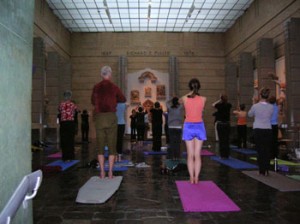 When entering the Seattle Asian Art Museum (SAAM) in the historic art-moderne building in Volunteer Park, you will step into the tranquility of the Garden Court, embraced by a thoughtfully displayed collection of ancient Indian sculptures. To your left, you will find a room that houses an assortment of Chinese art treasures, from bronze vessels crafted in the Shang Dynasty from almost 4000 years ago to porcelain pillows from the last several centuries. The wing to the right of the Garden Court is where you will experience ancient and contemporary Japanese aesthetic, including a Kakiemon bowl from the Edo period in the late 17th century along with sculptures and paintings by today’s Japanese American artists. SAAM brings world-renowned collections of Japanese, Chinese, Korean, Indian, Southeast Asian and Himalayan art to Washington, allowing Washingtonians to taste the Asian culture without traveling across the Pacific Ocean. For people who are curious about Asia, SAAM is definitely the place that would fascinate them.
When entering the Seattle Asian Art Museum (SAAM) in the historic art-moderne building in Volunteer Park, you will step into the tranquility of the Garden Court, embraced by a thoughtfully displayed collection of ancient Indian sculptures. To your left, you will find a room that houses an assortment of Chinese art treasures, from bronze vessels crafted in the Shang Dynasty from almost 4000 years ago to porcelain pillows from the last several centuries. The wing to the right of the Garden Court is where you will experience ancient and contemporary Japanese aesthetic, including a Kakiemon bowl from the Edo period in the late 17th century along with sculptures and paintings by today’s Japanese American artists. SAAM brings world-renowned collections of Japanese, Chinese, Korean, Indian, Southeast Asian and Himalayan art to Washington, allowing Washingtonians to taste the Asian culture without traveling across the Pacific Ocean. For people who are curious about Asia, SAAM is definitely the place that would fascinate them.
Besides the enjoyment of Asian art, many people were calling for additional ways to stretch their curiosity of Asian culture to another level. Mimi Gardner Gates, an Asian art historian, answered their call! As many people here are already familiar with the Asian culture in one way or another, Gates thought one more way to advance their and the region’s engagement with Asia is to provide them with a “holistic view.” Gates achieved this goal by founding the Gardner Center for Asian Art and Ideas, offering “dynamic public programs that provide multi-faceted perspectives on Asia, past and present.”
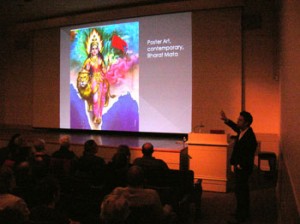 During her time at the Seattle Art Museum (SAM) as Director, Gates focused her efforts on growing SAM, including the giant projects of creating the Sculpture Park as well as renovating and expanding the current SAM’s downtown location. At her retirement, Gates thought this is the perfect chance for her to rewire her deep ties with Asian art and culture, after missing them for so long. Before SAM, Gates was the curator of Asian art and then director of the Yale University Art Gallery. Her solid academic background, from bachelor to Ph.D., was built around her passion in art history and Asian language and culture. In July, 2009, Gates founded the Gardner Center and asked Sarah Loudon to work with her in creating these programs.
During her time at the Seattle Art Museum (SAM) as Director, Gates focused her efforts on growing SAM, including the giant projects of creating the Sculpture Park as well as renovating and expanding the current SAM’s downtown location. At her retirement, Gates thought this is the perfect chance for her to rewire her deep ties with Asian art and culture, after missing them for so long. Before SAM, Gates was the curator of Asian art and then director of the Yale University Art Gallery. Her solid academic background, from bachelor to Ph.D., was built around her passion in art history and Asian language and culture. In July, 2009, Gates founded the Gardner Center and asked Sarah Loudon to work with her in creating these programs.
The inaugural program of the Gardner Center– the Saturday University Lecture Series – remains their flagship program, with two to three series offered between October and May. The eight- to ten-week-long series pull together academic and field experts to “explore all facets of Asia, both past and present from art and culture, literature, music and film to agriculture, health, population control and politics.” For their very first series, “Asia in Focus”, they invited professors from different departments of the University of Washington to provides an overview of each country’s rich history, intriguing contemporary politics and society, and distinctive art and culture. Sarah acknowledged that partnering with the Jackson School of International Studies at the University of Washington was what made Saturday University Lecture Series possible in the first place.
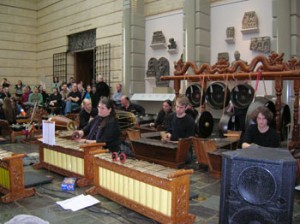 Being in Washington State, the home to many world-leading global organizations and international businesses, how could it be possible not for the Gardner Center to leverage this rich resources? Since its first successful partnership with the University of Washington, the Gardner Center also quickly took on the role as a “convening place” of many other Asian-affiliated organizations in the region. Its strategic partnerships with them have not only enriched Gardner Center’s programs, but have also provided a platform for these organizations to showcase their phenomenal work in Asia to the public. For example, the current series, “World Little Known: Central Asia, Its Histories and Place in Today’s World,” draws specialists from Landesa, the Snow Leopard Trust, the Jackson School of International Studies at the University of Washington, and other organizations to provide the public with interdisciplinary perspectives on Central Asia.
Being in Washington State, the home to many world-leading global organizations and international businesses, how could it be possible not for the Gardner Center to leverage this rich resources? Since its first successful partnership with the University of Washington, the Gardner Center also quickly took on the role as a “convening place” of many other Asian-affiliated organizations in the region. Its strategic partnerships with them have not only enriched Gardner Center’s programs, but have also provided a platform for these organizations to showcase their phenomenal work in Asia to the public. For example, the current series, “World Little Known: Central Asia, Its Histories and Place in Today’s World,” draws specialists from Landesa, the Snow Leopard Trust, the Jackson School of International Studies at the University of Washington, and other organizations to provide the public with interdisciplinary perspectives on Central Asia.
The Gardner Center has been very mindful of incorporating interesting, special programs as avenues to broaden audience’s knowledge and deepen their understanding of Asian culture. For instance, before participating in the lecture discussion on Saturday morning, you may choose to start off your day with a yoga class in the Garden Court at SAAM. After the intriguing lecture, you may also bring home related materials, hand-picked by the Elliott Bay Books, to continue with your exploration of Asian culture from the lectures. That way, your experience with Asian culture will be stretched, through both mind and body.
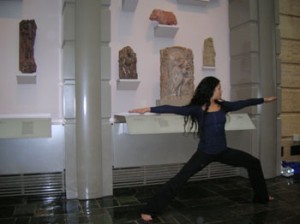 Being an independent and flexible program initiative, the Gardner Center has the advantage to be very experimental with a wide variety of programs in addition to the Saturday University Lecture Series. That includes unique musical recitals, such as the recent performance by Gamelan Pacifica, which drew an overflowing audience. On March 6, this Seattle’s orchestra from Indonesia performed dramatic gong-chime percussion resonancing the Indian sculpture at SAAM’s Garden Court.
Being an independent and flexible program initiative, the Gardner Center has the advantage to be very experimental with a wide variety of programs in addition to the Saturday University Lecture Series. That includes unique musical recitals, such as the recent performance by Gamelan Pacifica, which drew an overflowing audience. On March 6, this Seattle’s orchestra from Indonesia performed dramatic gong-chime percussion resonancing the Indian sculpture at SAAM’s Garden Court.
Special visual performances, film showings and book reviews are also built into Gardner Center’s upcoming schedule. On March 25-27, the Gardner Center will house the Aaina Festival presented by Tasveer. Highlighting issues relevant to South Asian women, the festival will feature film, visual and performance art, such as Yoni Ki Baat, an adaptation of The Vagina Monologues, sharing unique, true stories from local South Asian women.
A documentary film, “Desert of Forbidden Art,” will be shown on April 7. Described by the New York Times as “one of the most remarkable collections of 20th century Russian art,” the film tells the incredible story of how Igor Savitsky risked his life to rescue over 40,000 works of art by his fellow Russian artists, many of them had been executed, during the oppressed era of Stalin. This film also follows how he created a museum in Uzbekistan allowing all of these almost extinguished artworks to be uncovered to the world again.
Also, on April 14, the Gardner Center will present a book review from the former executive editor of the New York Times, Joseph Lelyveld on his new book, “Great Soul: Mahatma Gandhi and his Struggle with India.” This coming summer, fans of Asia can also expect a very exciting outdoor film series in Volunteer Park, introduced by one of the best-known Bollywood actresses!
The next time when your curiosity of Asian culture calls, be sure to check out the Gardner Center’s schedule before you step into SAAM. You are sure to have a holistic Asian experience.
For more information on the Gardner Center for Asian Art and Ideas and its program schedule, please visit:http://www.seattleartmuseum.org/GardnerCenter/default.asp
Back to Top
Changemaker: Dan O’Neill, Founder of Mercy Corps
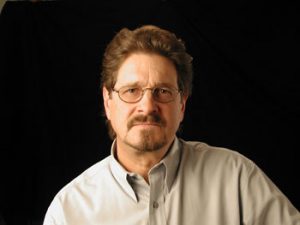
Dan O’Neill
“For over three decades we have helped people grappling with the toughest hardships survive — and then thrive,” says, Dan O’Neill, the founder of one of America’s most effective and efficient charitable organizations, Mercy Corps. Mercy Corps provides support to communities living in the world’s toughest places and has been successful in bringing about positive change in the lives of 19 million people.
Dan O’ Neill’s commitment to serving the world’s vulnerable and oppressed through Mercy Corps dates back to the tumultuous period of the Vietnam War. In the early 1970s, as a UW student working as a political cartoonist and graphic artist, Dan went through what he called “spiritual renewal.” He realized that he wanted to be more globally engaged, give something back to the society, and make a difference in the world.
He went overseas and worked as a volunteer in South and East Africa, Europe and the Middle East. Appalled by the poverty, hunger, misery, distress, and persecution, in these war-ravaged regions, Dan became more determined to do humanitarian work. The Cambodia crisis, marked by mass killing and a huge refugee migration following the Vietnam War, gave Dan the opportunity to be more involved. In 1979, he co-founded Save the Refugees Fund, an emergency relief task force to assist Cambodian refugees. That year was also significant as it was the same year that Mother Teresa–one of Dan’s heroes–received the Nobel Peace Prize.
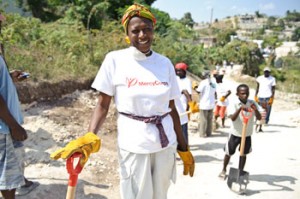
Photo Credit: Miguel Samper for Mercy Corps
Dan had been aware of Mother Teresa’s work in Calcutta and was greatly influenced by her dedicated service. The thought of a small, elderly Eastern European woman—“just one person,” emphasized Dan—being so committed in reaching out to “the poorest of the poor” and addressing the issues of radical poverty was deeply inspiring to him. He realized that she was living out what he called back then “the moral imperative” to make a positive difference in the lives of the disadvantaged people and also see them as partners in their own improvement. Save The Refugees Fund led Dan to found Mercy Corps in 1981, which works to alleviate suffering, poverty and oppression by helping people build secure, productive and just communities.
Mercy Corps first earned a name for itself during to the famines, refugee crises and conflicts in Somalia, Sudan, Rwanda, Zaire, Ethiopia and Eritrea. The organization’s first major achievement was the grant they received from USAID in 1985-86. Mercy Corps transported food in 100 diesel trucks from Sudan into the areas of famine and poverty, oftentimes in combat situations, losing some of their vehicles to Ethiopian MIGs. They were also selected to be the recipient of funds under the “Project SOS” program, (Seattle’s Outreach to Sudan led by the mayor, public officials and NGOs). Despite being a small organization at the time, Mercy Corps made a significant impact from the beginning.
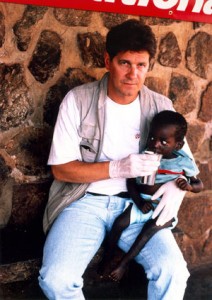
Photo Credit: Mercy Corps
According to Dan, every situation and region warrants different relief and development strategies. The Global Emergency Operations (GEO) Team of Mercy Corps, created in the year 2000, makes needs assessments and lays foundations for emergency operations. The assessment includes communicating with the local players to plan operations, how to best engage, and what partners to work with. They also decide on the method of funding and if they should immediately start working on applications for the grants. Mercy Corps provides immediate emergency relief while identifying early recovery opportunities to help survivors build a better future. Since 2000, members of the GEO team have deployed in more than 30 international emergencies and have provided technical support and coordinated emergency responses in many more.
Mercy Corps has always been a strong advocate of human rights. Dan was ideologically influenced by Nelson Mandela and Martin Luther King Jr., who both took peaceful but assertive stances on human rights. In 1972, Dan personally witnessed the abuses of Apartheid in South Africa and white rule in Rhodesia (now Zimbabwe). From the time of Mercy Corps inception, the agency has made the connection between poverty and human rights – speaking out for human rights during the war in Nicaragua, the killings in Guatemala and El Salvador in the 1980s and also in South Africa and Middle East.
For more than thirty years, Mercy Corps programs have addressed humanitarian needs, created economic opportunities, offered leadership programs to youth and promoted good governance. When asked about the safety and security concerns in carrying out relief and development operations, Dan said “political unrest strategically makes the execution of programs difficult but it also offers the opportunity to make a difference to people’s lives.” In their attempt to bring positive change through non-violent means, Mercy Corps staff often find themselves on the front lines of violent conflict. Some of them have lost their lives, the most recent being the abduction and execution of one of their longtime Pakistani staff in June 2010. “We reflect on their bravery and sacrifice,” says Dan, “and in their honor and memory continue to work towards positively affecting lives.”
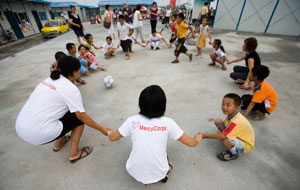
Photo Credit: Miguel Samper for Mercy Corps
Another one of the important missions of Mercy Corps, according to Dan, is to involve youth in finding out meaningful ways to build peace. Their international GCC (Global Citizen Corps) program gives young people the tools, the fellowship, and the inspiration to raise awareness and funds for humanitarian causes. So far GCC’S face-to-face leadership summits occur only in the US, but there are Global Citizen Corps groups and training workshops in several countries, including Scotland, Lebanon, Jordan, the Gaza Strip and Iraq. Through video conferencing, Mercy Corps’s plan is to engage more and more teenagers in a meaningful dialogue and help globally conscious and energetic young people share ideas in such virtual gatherings for positive change in the world. According to Dan, with the globalization of communication, the consequences of the decisions that countries are making have a wide impact. It is important for individuals to become engaged global citizens, to educate themselves, and to take action towards ensuring peaceful change across the world.
The state of Washington holds tremendous potential to improve global humanitarian work. Dan emphasizes the value of partnerships and hopes that Global Washington as a membership association can serve as a powerful forum for exchange of ideas, collaborative processes, and inspiration. In his words, “Global Washington should define ways to engage people in the state to have a global vision and inspire Washingtonians to make a positive difference.”
Back to Top
Welcome New Members
Global Washington would like to welcome everyone who has become a member since January! Please take some time to familiarize yourself with these organizations that are doing wonderful work in the state of Washington. Consider what opportunities there might be for collaboration and support. Together we are creating a unified voice for the development sector in the state and are working to build a equitable and prosperous world.
Technology & Social Change Group (TASCHA)
The Technology & Social Change Group (TASCHA) at the University of Washington Information School explores the design, use, and effects of information and communication technologies in communities facing social and economic challenges. With experience in 50 countries, TASCHA brings together a multidisciplinary network of social scientists, engineers, and development practitioners to conduct research, advance knowledge, create public resources, and improve policy and program design.
Bainbridge Ometepe Sister Island Association (BOSIA)
The purpose of the Bainbridge-Ometepe Sister Islands Association is to encourage mutual understanding, education, friendship, cultural and peaceful exchanges between the people of Bainbridge Island and Ometepe Island, and between the peoples of the United States and Nicaragua
Global Team for Local Initiatives
GTLI is dedicated to helping indigenous people lead healthy lives. Working closely with tribal elders, we help implement sustainable development projects for long-term survival and income generating activities for immediate relief.
Global Women’s Philanthropy Project
Quixote Associates
Quixote Associates is a management consulting company founded to help non-profit, socially-responsible organizations and small, diverse businesses create sustainable strategies and improve operations. Quixote Associates helps build capability and capacity by assessing and facilitating strategic planning, operations management, project management, measurement & evaluation, communications, process improvement, training.
One Equal Heart Foundation
One Equal Heart Foundation accompanies the poor in Chiapas, Mexico as they work to promote nonviolence, build sustainable communities, steward natural resources, and preserve the cultural identity of the Tseltal Maya People.
Individuals:
Anne Sheeran
Paula Rowland
Mark West
Back to Top
Announcements
Washington Organizations Respond to Japan Earthquake
The state of Washington is home to an active global development community, consisting of many organizations, businesses, and individuals that have been moved to respond in some way to the recent disaster in Japan. Global Washington is compiling information about Washington State’s relief efforts, including details about the work that some of our members are doing. Please visit our website for up-to-date information and resources.
We are also co-hosting an event with Seattle Greendrinks on April 12th, which will gather the Seattle community to learn about the disaster. Proceeds will be donated to Mercy Corps. Click here to learn more or register.
Global Washington Events
Don’t forget to register for our upcoming workshops:
- Developing a Communication Plan for Your Organization, Wednesday, April 13
In this three hour training session, Claudia Ender will guide you through the different components of communication planning, and will give you an opportunity to start your own plan with hands-on exercises. At the end of the training, you will have developed a first draft for your organization, and you will be confident about finalizing it with your respective stakeholders.
- Evaluation Workshop with Innovations for Poverty Action, May 16th & 17th
This two-day workshop will present how rigorous evaluations can show whether an intervention actually has a positive impact on the beneficiaries it is supposed to serve. We will make the case for evidence-based decision making, introduce the ideas of evaluation and impact assessment, and outline some poverty interventions that have been proven to work through rigorous experimentation in the real world.
Technology solutions for nonprofits
Software Guide from Idealware. Idealware’s 2011 Field Guide to Software for Nonprofits is now available at Lulu.com for $19.95. The Field Guide provides an overview of over 50 different types of software to help you determine how you can best use technology to meet the specific needs of your organization. This is a great tool to increase your efficiency and stay on the cutting edge of the latest trends!
Looking for a database or e-marketing tool? Global Washington uses an affordable online database tool called eTapestry to keep track of our contacts and to generate our emails (like this one). If you are interested in learning more, consider allowing us to refer you—you’ll get good information about whether eTapestry could meet your needs, and we will get a discount if you end up purchasing services! Email admin@globalwa.org.
Guiding Lights Weekend
The theme of Guiding Lights Weekend 2011 is “Great Citizenship,” and the two-day event will focus not just on lobbying, but also on community organizing and engagement. This conference will take place on March 25 and 26th at the Fisher Pavilion in the Seattle Center. Speakers will include Van Jones, a green economy pioneer, environmentalist and author, Bill McKibben, Dan Savage, an author and founder of the It Gets Better Project. To learn more, see the full schedule, or register please visit the conference webpage.
Conference Explores Business Contribution to Ending Global Poverty
On April 1st and 2nd, Seattle Pacific University is hosting “Bottom Billions/Bottom Line,” a conference focused on the role of business in ending global poverty. The conference will be relevant to business leaders and employees, consumers, social entrepreneurs, and anyone else interested good global citizenship and corporate social responsibility. Speakers will include Gregg Nebel, head of social and environmental affairs at the adidas Group; Bonnie Nixon, director environmental sustainability and Hewlett-Packard; and Rob Smith, CEO of Earthwise Ventures. For a complete list of speakers, more information about the conference, and registration, visit the conference website.
iLEAP Dinner at FareStart
iLEAP: The Center for Critical Service is hosting “i4 2011:iNSPIRING iDEAS, iGNITING iNNOVATION” on April 13th, 2011 from 6pm-8pm at FareStart Restaurant in Seattle. This informational dinner will feature, Mabilia Joj, a graduate of iLEAP’s 2010 fellowship. Mabilia will talk about her iLEAP experience and how it is informing her work in Guatemala with women and indigenous communities. iLEAP is a nonprofit organization that seeks “to cultivate and inspire a new generation of global citizens.” They accomplish this through “hands-on, educational and professional training programs in Seattle and innovative international travel programs in partnership with communities in Asia, Africa and Latin America.”
To learn more about this event, visit www.iLEAP.org/i4-2011 or buy tickets online from Brown Paper Tickets.
To Catch a Dollar: Muhammad Yunus Banks on America film & campaign
On March 31, the Sundance documentary To Catch a Dollar premieres in theaters nationwide. This one night only event will spotlight the promise of microfinance in America through stories of brave women entrepreneurs. Following the film will be a special simulcast panel moderated by CNBC’s Maria Bartiromo and featuring Nobel Laureate Professor Yunus, Kiva President Premal Shah and special guest, financial powerhouse Suze Orman. This event will kick off a long-term campaign to reframe perceptions of poverty and to extend the reach of financial services in America.
For more information and to spread the word, visit:
SeaMo and Fortunato Vega are also hosting a VIP Reception in conjunction with the movie premier. All VIP Reception attendees will enjoy appetizers and networking opportunities in advance of the film premiere, as well as VIP reserved seating at the theatre. The reception will take place at the Bombay Grill in Seattle and the movie is on the same block at the Landmark Metro Theater. Tickets are $25 and can be purchased at http://tcadvip.eventbrite.com/.
Seattle Public Schools Celebrate World Water Day
Students at Chief Sealth International High School have organized a week-long festival to draw awareness to both local and global water issues. They are inviting the public to attend a free public lecture by Robert Glennon on Monday, March 21 at 7:00 pm in the Chief Sealth International Auditorium. Glennon is a professor of law and public policy at the University of Arizona and is the author of the bestselling book, Unquenchable: America’s Water Crisis and What to do about it.
Before the keynote lecture, there will be a water resource fair with tables from local government and non-profit organizations. There will also be live jazz music and refreshments. For more information, download the flyer: http://www.seattleschools.org/schools/chiefsealth/h2o.html. For questions about this event, please contact Noah Zeichner: nczeichner@seattleschools.org
Teacher Partnership Dinner with Global Visionaries
Global Visionaries (GV) is inviting new and previous trip leaders and other teachers interested in Global Education to attend a dinner with GV staff on April 7th. This will be a great opportunity to network and to learn more about the mission of Global Visionaries: “To empower young people to become global leaders in creating a just and sustainable future.” The dinner will take place at Yanni’s Greek Restaurant in Seattle at 5:00pm. If you are interested in attending, please contact Reagan Jackson by Monday, March 28 at reaganjackson@global-visionaries.org.
Seattle International Foundation Announces Call for Applications under its 2011 Global Program
The Seattle International Foundation (SIF) is now accepting applications under its Global Program. The Global Program (small grants for local organizations) supports and fosters local organizations working internationally. SIF is interested in development projects in all regions of the world.
The Global Program is open to 501(c)3 organizations, or those with fiscal sponsorship, with an annual organizational or project budget of less than $2 million (USD). Preference will be given to organizations based in the greater Puget Sound region; organizations based outside of Washington State are not eligible. The program seeks to support organizations launching new projects, or working to establish or expand an international project or program.
For more information on how to apply: please visit www.seaif.org, or contact Michele Frix (Program Officer) at mfrix@seaif.org.
Back to Top
Global Washington Events:
Wednesday, April 13
GW EVENT: Developing a Communication Plan for Your Organization
Monday, May 16th
GW EVENT: Evaluation Workshop with Innovations for Poverty Action
Monday, May 16th
GW EVENT: More Than Good Intentions Book Discussion
Tuesday, May 17th
GW EVENT: Evaluation Workshop with Innovations for Poverty Action
Back to Top
Other Events:
Tuesday, March 22
Habitat for Humanity – Building Houses, Building Hope Breakfast
World Water Day Forum and Exposition
Global Partnerships Open House
Wednesday, March 23
Global Classroom: Protest and Participation in the Middle East Exploring News Media Stereotypes and Bias
Faces of Hope with Friends of the Orphans
The American-Israeli Relationship: Where is the Obama Administration Taking It?
Thursday, March 24
It Happened on the Way to War
Friday, March 25
Aina Film Festival
The 11th Generative Approaches to Second Language Acquisition Conference
Guiding Lights Weekend 2011: Great Citizenship
Saturday, March 26
Aina Film Festival
The 11th Generative Approaches to Second Language Acquisition Conference
Guiding Lights Weekend 2011: Great Citizenship
Saturday University Lecture Series: Colorful Ikat Textile Design and Central Asian Aesthetics
HARAMBEE Community Event
Sunday, March 27
Aina Film Festival
The 11th Generative Approaches to Second Language Acquisition Conference
Faces of Hope with Friends of the Orphans
Monday, March 28
Networking Reception and Discussion: Chernobyl 25 Years Later: Lessons Learned?
Tuesday, March 29
Faces of Hope with Friends of the Orphans
Thursday, March 31
“How Could This Indian Be a Diplomat?” Gender, Power, and Transregional Interactions in Argentina
World Affairs Council Spokane: International Justice at the Crossroads
Friday, April 1
Bottom Billions/Bottom Line Conference
Pacific Northwest Global Donors Conference
Faces of Hope with Friends of the Orphans
Music: Kafana Club
Saturday, April 2
Bottom Billions/Bottom Line Conference
Pacific Northwest Global Donors Conference
Saturday University Lecture Series: Women’s Work in Central Asia: Past and Present
Monday, April 4
Libya: Social Origins of Dictatorship & Democratic Uprising
Tuesday, April 5
Classroom On The World: Teaching About The Middle East
Wednesday, April 6
Global Public Health Challenges
Thursday, April 7
Global Visionaries (GV) Teacher Partnership Dinner
Saturday, April 9
Saturday University Lecture Series: Struggles of Central Asia Since Independence
Tuesday, April 12
April Greendrinks: Seattle For Japan Benefit!
Wednesday, April 13
Challenges of Food Security in a Global World
Thursday, April 14
World Affairs Council Spokane: From Narvik to Spokane, with a Stop in Vegas, Aboard the Financial Crisis Express
Saturday, April 16
Global Health & Innovation Conference
Saturday University Lecture Series: Creating Community Solutions to Rural Issues in Central Asia
Sunday, April 17
Global Health & Innovation Conference
Tuesday, April 19th
Investment Opportunities between China and Washington State
Trade Development Alliance: Lunch with Delegation from China
Wednesday, April 20
Reflections on Global Environmental Issues
Wednesday, April 27
Future Role for the U.S. in Meeting Global Challenges
Thursday, April 28
Exploring Humanitarian Law Workshop for Educators
Back to Top
Girls In The Spotlight: A Lesson From Rwanda
Posted on March 21, 2011.
When I try to get people interested in the education cause in Rwanda, they often tell me that they’re up to their eyeballs in work on public or charter schools in their own neighborhoods – Upper West Side, Noe Valley, wherever. Some people, though, have a broad definition of “neighborhood.”
A couple of years back, two women from Seattle approached me about the possibility of establishing a girls’ school here in Rwanda. I’ve grown accustomed to receiving countless entrepreneurial inquiries from well-meaning people and seeing little come of them, so I must admit that my first reaction was skepticism.
Girls In The Spotlight: A Lesson From Rwanda
Josh Ruxin | On the Ground | Nicholas D. Kristof | The New York Times | March 21
Feeding the Future
Posted on March 17, 2011.
With global food prices at an all time high, and rising, the 1 billion people around the world currently living with chronic hunger stand to get company in the coming months. That is, unless the developed world is able to help to effectively sort out and deal with the root causes of global hunger. Luckily the international community has already been working on a solution.
After the financial crisis and soaring food prices caused riots in 30 countries, the G8 decided to make addressing food insecurity a priority through investments in agricultural development. In the United States, this decision lead to the development of an agriculturally oriented initiative called Feed the Future. While shifting focus away from food aid, the United States endeavored to create a locally owned, multilaterally supported initiative committed to addressing hunger through increased agricultural output and increased trade and economic development.
In order to accomplish this goal, Feed the Future sets out on a path of collective action, leveraging the cooperation of donors, civil-society, the private sector, and the local governments. Such a cooperative model will be integral in promoting the local ownership of agricultural development projects funded through Feed the Future. Input from all stakeholders will be sure to maximize the impact of these projects through the delineation of key priorities, sustainable implementation of the projects, and the use of new and innovative technologies.
In line with Feed the Future’s key principles of local ownership and multilateral cooperation, a central component of the initiative is a multilateral fund named the Global Agriculture and Food Security Program (GASFP). GASFP distributes its funding (about $925 million to date) to both the public and private sectors to assist in the development of agricultural development strategies.
Working towards local ownership on a bilateral level, the United States is currently working with its targeted countries to develop an implementation plan. The U.S. is reaching out to local governments, key civil society organizations, businesses, and multilateral organizations to develop the most effective and sustainable multi-year development plan. To bolster these national agricultural plans, the U.S. is working with key regional actors to develop regional plans as a means to open markets, instigate economic growth, and address sources of hunger.
With time and a sustained investment in the locally focused and multilaterally supported Feed the Future Initiative, the Millennium Development Goals of reducing hunger and poverty are infinitely closer to being achieved.




















